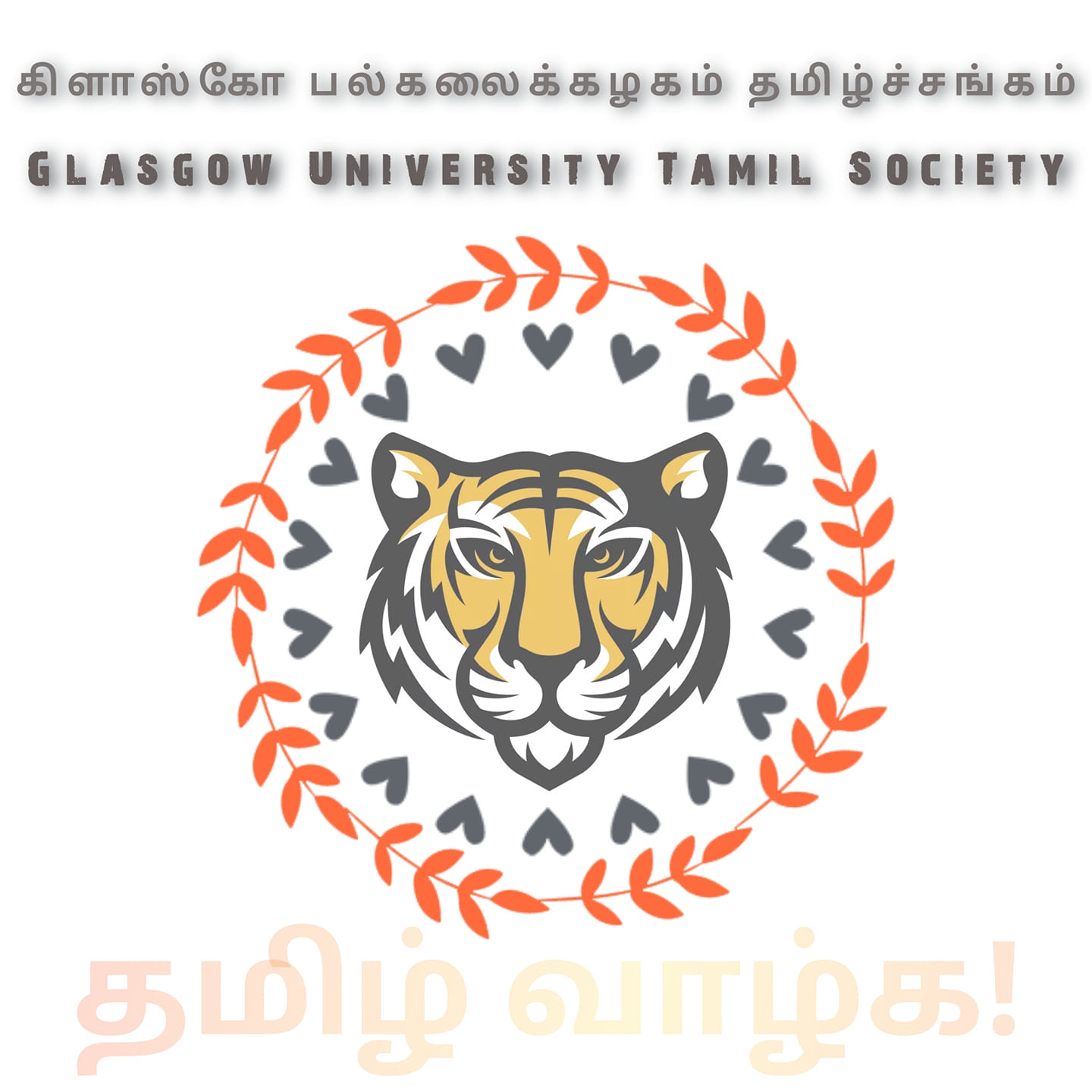
"The tiger has always been an integral part of Tamil history."
Tamil students at the University of Glasgow have launched its first Tamil society, marking a spread of the vibrant Tamil student culture which already exists in England to another European country.
The city of Glasgow itself though, has been no stranger to Tamil activism, with soldiers who laid down their lives fighting for Tamil Eelam duly commemorated by Glasgow Tamils on Maaveerar Naal every year.
Scotland and Tamils
One can trace the connection between Scotland and the Tamil homeland back to the colonial era. The great 19th century Tamil scholar and evangelist Robert Caldwell, who studied Sangam literature and wrote an impressive treatise on Dravidian languages, was born to Scottish parents. Incidentally, he had also attended the University of Glasgow.
“Thomas Munro went to [University of] Glasgow too,” said Dhivya Anand Kumar, the founding-president of the Glasgow University Tamil Society in an interview with Tamil Guardian, referring to the Glaswegian military officer who became the Governor of Madras in the early 19th century. Indeed, the Madras College in St. Andrews derives its name from the system of tutorship devised by the school’s founder during his time in colonial Madras.
Need for a distinct Tamil space
Despite the historical and contemporary links between Scotland and Tamil, Anand Kumar noticed a lack of space in Scottish universities to celebrate Tamil language, history and culture. “Most students from Tamil Nadu tend to gravitate towards the Indian society,” she said, where Tamil culture is subsumed by a bigger club meant for the entire subcontinent. “Our individuality is not visible there,” agreed Vignesh Rajendran, who joined the society and was later elected treasurer.
Therefore, Anand Kumar decided to fill the lacuna. “I wanted to create a space where we could celebrate the language and culture and also spread its literature to people who are not Tamil.” Anand Kumar acknowledged the support she received to that end from the Tamil Students Initiative (TSI), an umbrella organisation of all Tamil student societies in the UK, and members of societies from King’s College London (KCL) and the University of Leicester.
Spreading language and literature
In regards to spreading the literature, the society plans to kick off with poetry reading sessions that make use of English translations that would attract a wider cross-section of students. Setting their eyes on the likes of George L. Hart and David Shulman, both academics who translated Sangam poetry for a Western audience, the members of the club look to popularise the ancient literary corpus amongst a new audience.
“We already have students from countries like Bangladesh, China and Argentina in the society, who are keen to learn more about Tamil culture and politics.”
When asked how enthusiastic pupils are about learning a new language and its literature, Anand Kumar expressed measured optimism. “People are definitely interested,” she said. “We already have students from countries like Bangladesh, China and Argentina in the society, who are keen to learn more about Tamil culture and politics.” When asked how practicable it is to introduce Tamil to people of diverse backgrounds, Rajendran referred to the example of Constantine Joseph, an 18th century Jesuit priest who made indispensable contributions to Tamil literature.
Bridge between Tamils of various backgrounds
Besides celebrating Tamil festivals, screening movies and conducting poetry readings, the club also plans to teach Tamil to interested learners. “Not only does it help promote the language,” Anand Kumar said, “it also brings Tamils from different countries closer together.”
"This will be a space where everyone can feel a sense of belonging.”
Expressing her displeasure with the deterioration of the language - particularly the growing use of English vocabulary in lieu of Tamil equivalents - in Tamil Nadu, she said running language courses would help Tamils of different backgrounds to learn from each other.
“We have only three Eelam Tamils with us so far, including a teaching staff member,” said Anand, but the society has grown in recent months, with other Tamils from around the world joining as word spread. A few months into its establishment, the society has a total membership of little over a dozen, expecting more Tamils and Tamil enthusiasts to join in the coming years. “This will be a space where everyone can feel a sense of belonging.”
Remembering the heroes
Tribute to the Maaveerars (great heroes) who sacrificed their lives for the cause of Tamil Eelam figures prominently in the society’s agenda and symbolism. “I’m sure we will commemorate Maaveerar Naal this year,” Anand Kumar said.
A tiger is centred in the society’s logo which marks “its integral significance to Tamil history,” as Rajendran, who designed the logo, put it. “The flower garland laid around it is an expression of reverence to the maaveerars,” he said.
The duo of office-bearers asserted that the society will work to deepen links between Tamils and “transcend borders” to lend support to Tamils who face various challenges around the globe.
